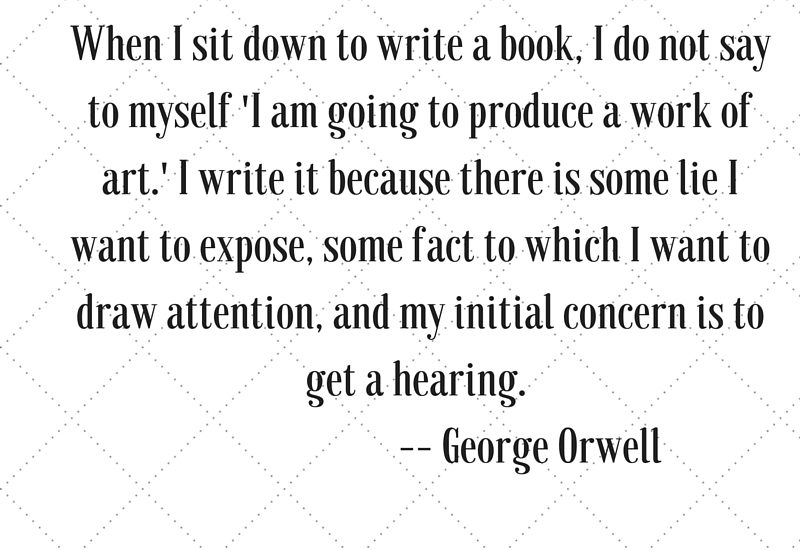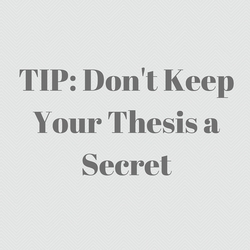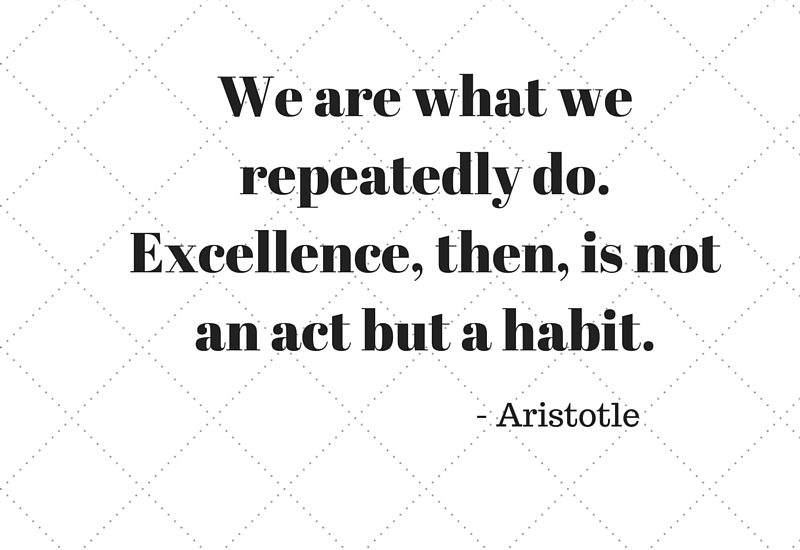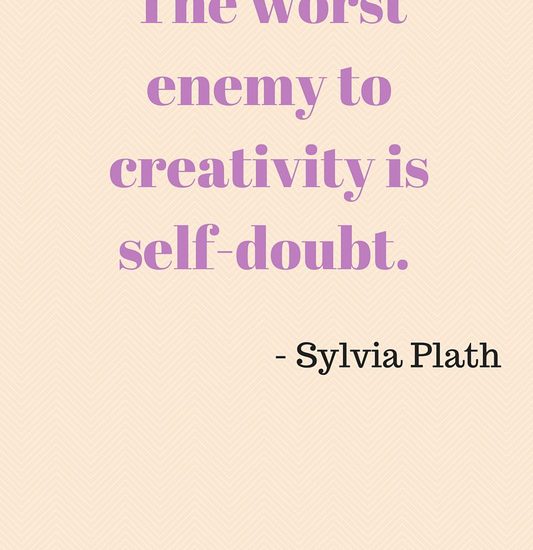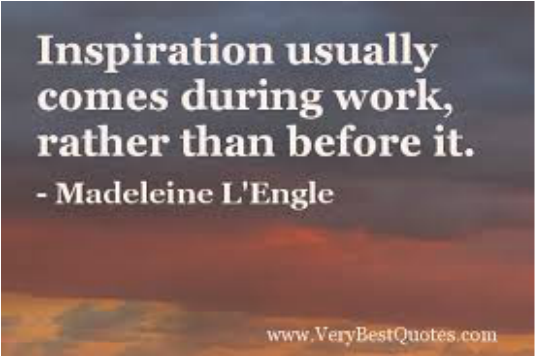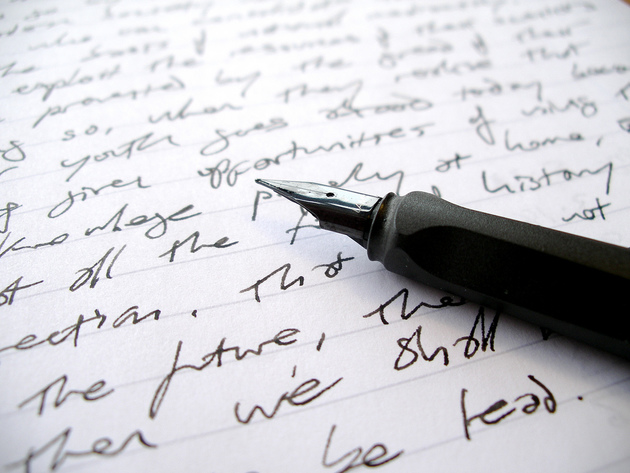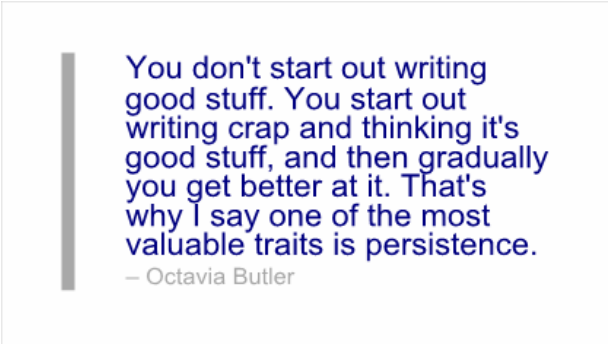This post is the first in a series called “From Course Paper to Article,” where I explain how to transform your course paper into a manuscript ready to submit to a journal. This series will walk you through the process of selecting a topic, preparing for writing, making the most of the data you collect
Are You Keeping Secrets?
In academic writing, and all writing, the goal of the author is to keep the reader’s attention. Lose the reader at the beginning, and you lose the opportunity to share your analysis and insights. That’s why it is so important to begin your article with a hook, or an explanation of what your paper
Writing Collaboratively
Working with others is not a skill that everyone learns in grad school. For many students, writing is a solitary affair, with the dissertation being a sole-authored document and co-authorships being frowned upon in the early years as a junior faculty member. This of course varies by discipline and the type of research one
Monday Motivation
A reminder: don’t wait until you feel inspired to write, just write!
Monday Motivation
The worst thing you write is better than the best thing you did not write. – Unknown Photo Credit: Phil Gyford
Conquering Fear in Writing
For academics, writing is the public face you show to the world. It’s the basis on which you are judged by your peers, for both jobs and promotions. There is a lot riding on the written word, so its no wonder that writing can be a source of anxiety and fear.The apprehension that writers
Get that Dissertation Done!
Remember, a done dissertation is a good dissertation. Many graduate students are in the home stretch of dissertation writing, and you are probably exhausted. You’ve written one of the longest documents you have ever or will ever write, and while you can see the finish line you know there is so much more to do.
Monday Motivation
We’re starting a new series on the blog called “Monday Motivation” which will include quotes, short tips on writing and productivity, or anything else that might spark your motivation. After all, who needs something else long to read at the beginning of the week? “When I sit down to write a book, I do
Make it Count: When Your Word Limit is Not Your Real Problem
In the first post in this series I discussed trimming words. The reasons I outlined were mainly aesthetic, detailing how to cut the length of a manuscript that is analytically sound, with strong substance. That type of trimming is still painful, but doesn’t really change the substance of your ideas or argument. Adding length can
Make it Count: Meeting Word Limits
Crafting a manuscript to meet prescribed word limits is probably one of the most vexing issues that academic writers face. Journal editors and book publishers have firm ideas about the length of an article, book, or book chapter, and writers do not have much freedom to deviate from these rules. In a series of blog
Just Say No – To Yourself
A few days ago I had the pleasure of co-hosting a #withaPhD Twitter chat with Jennifer Polk of From PhD to Life. The topic I chose was “working nine to five” (you can see the chat archived on Storify here) and my intention was to talk about maintaining a balance between working and having a
Getting Un-Stuck in Writing: Two Quick Tips
Getting stuck in writing can hamper productivity and leave you feeling as if you are not accomplishing your writing goals. It’s hard to schedule creative thought, and the time you set aside for writing is not always the time when you have your best ideas. Being stuck, however, should not become an excuse to abandon
What Is Your Writing Process?
Over the past couple of weeks I have had the opportunity to talk to academic writers about their writing process. This is also a question I ask new clients if I work with them as a developmental consultant. While there is great variation in how writers work, knowing your own process is essential to staying
Want to Increase Summer Productivity? Take a Vacation
Summer is a time of lofty goals – you’ll write a book manuscript, submit an article or four, prep new courses, and apply for the grant you’re been thinking about. It is often the case that the earlier you are in your career, the more pressure there is to produce, produce, produce over the
Writing Literature Reviews: Developing a Backstory
In academic writing, the author’s goal is to convince the reader that the argument they are reading is in some way novel or unique. A great literature review gives the reader a thorough backstory on the topic, explaining how it has been discussed by other authors. After all, you can’t convince a reader your argument
Literature Reviews: Getting Started
Many graduate students are at a loss when starting literature reviews. How do you start? What literature do you start with, and where do you find it? How do you know when you are done? I’ve put together a series of guides for writing a literature review, and here is the first. What challenges do
Use Your Words
We are all guilty of it: getting caught up in academic jargon or using words that only a handful of people would recognize at first glance. It’s not surprising, because we generally write for people just like us – people with PhDs engaged in similar disciplinary specialties and literatures. We expect that our readers are
Developing Mindful Writing Goals
Much of the advice around writing productivity focuses on maintaining a daily practice of writing. For many, a daily practice means either writing for a set amount of time every day, or committing to put a specific number of words to paper. While both of these strategies are useful – and necessary so that you
What is Developmental Consulting?
Developmental editing or consulting is a process where I work with you to bring a project from its initial unfinished state to a fully articulated manuscript. I help you to hone in on what needs to be done, then I supply you with the tools to do it. This can include mapping out a plan
Setting Goals, plus a free download!
There have been many times where I have sat to make a daily to-do list and somewhat mindlessly added a list of tasks, with no real sense of what these tasks would result in on a daily basis. I blame this partially on the structure of my planner. It has a calendar and blank note
Setting Boundaries as a Form of Time Management
We have all experienced this moment. You’re in your office, settling in to write, grade papers, or what have you. Suddenly, a colleague strolls in, sits in the chair next to your desk, and begins to chat about, well, you don’t even know what they’re saying because you’re looking at the clock and thinking about

